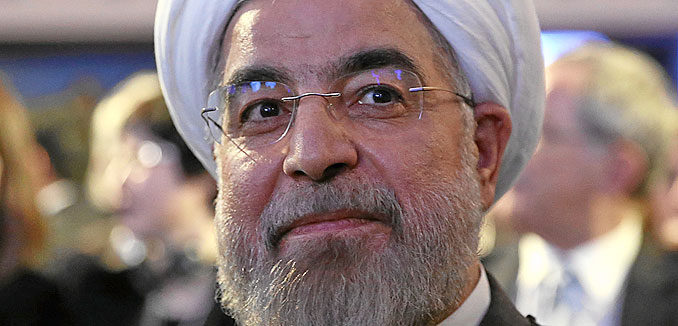Iran has sentenced four journalists to jail on charges of subverting national security, their lawyers told reporters on Tuesday.
Iran’s Islamic Revolutionary Guards Corps announced last November that they had arrested “several members of an infiltration network linked to hostile Western governments.” The suspects “were working in the country’s media and social networks,” authorities said.
At the time, Ahmed Shaheed, the United Nation’s special rapporteur for the human rights situation in Iran, warned that the “Increasing intimidation of journalists is hindering their ability to operate freely in [Iran].”
“The government of Iran should not silence critical or dissenting voices under the guise of vague and unsubstantiated national security concerns,” he added.
The journalists, three men and one woman, were given sentences ranging from five to 10 years, Iranian state broadcaster IRIB reported. Two of the men are said to be affiliated with reformist publications.
Afarine Chitsaz, the female journalist, and Ehsan Safarzayi both received five-year terms, while Ehsan Mazandarani was given a seven-year sentence and Davoud Assadi a 10-year sentence.
Gholam Hossein Mohseni-Ejeie, a Judiciary spokesperson and deputy chief, confirmed on Sunday that four sentences had been handed down. The fate of a fifth journalist in custody, Issa Saharkhiz, remains unclear. Saharkhiz completed a three-year prison term in 2013 after he was convicted of insulting Iranian Supreme Leader Ayatollah Ali Khamenei and publishing propaganda against his regime.
Saharkhiz allegedly criticized Khamenei and other Iranian leaders while talking to foreign media in the months prior to his most recent detention.
Mazandarani ran a reformist paper, Farhikhtegan, and was previously detained over allegations that he acted against national security and was in contact with foreign nationals in 2009. At the time, many Iranians were protesting the disputed re-election of former Iranian President Mahmoud Ahmadinejad.
All four convicted journalists are expected to appeal their sentences.
Shaheed wrote in a March report that Iranian civil life has been marked by a “widening crackdown” on freedoms, including freedom of expression. While Shaheed welcomed the release of Washington Post reporter Jason Rezaian, who was convicted of espionage in a secret trial before being freed earlier this year, he also noted that “as of January 2016 at least 47 journalists and Internet users were reportedly imprisoned” by Iran. This has resulted in a dismal rating of 173 out of 180 according to the World Press Freedom Index.
Shaheed also expressed regret over “a widening crackdown on freedom of expression and opinion during the reporting period, punctuated by a series of arrests carried out by the intelligence unit of the Revolutionary Guards and harsh sentences against journalists, cyberactivists and artists.”
The Associated Press reported in October that two Iranian poets were imprisoned and sentenced to 99 lashes apiece for shaking hands with members of the opposite sex. The AP also noted that at least 30 journalists had been arrested by the regime by the end of 2014.
In Should the U.S. Take Iran’s Human Rights Problem More Seriously?, which was published in the April 2015 issue of The Tower Magazine, senior editor Ben Cohen highlighted Shaheed’s efforts to document Iran’s human rights situation, which has worsened since the election of Hassan Rouhani as president two years ago.
[Photo: World Economic Forum / Flickr ]




